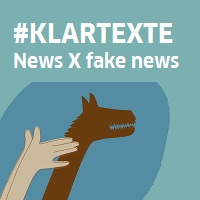
A box to open horizons

Sometimes you fight fire with fire, and sometimes you fight boxes with boxes. That’s the plan hatched by Cristina McAllister, creator of StemBox, a science package that will be mailed each month to girls who subscribe to the service.
Inspired by her own love of science — and her struggles to overcome gender stereotypes that boxed her in at times — McAllister is developing boxes of appealing, approachable experiments-of-the-month for girls aged 7 to 14. The name comes from STEM, short for “science, technology, engineering and mathematics,” historically fields in which women are underrepresented. McAllister hopes girls can use the boxes as a tool to break free from the confines often created by cultural definitions of who should be a scientist — and pursue science beyond stereotypes.
“I want to help girls develop their natural inquiry and give them the tools to follow it,” said McAllister, a technician in Dr. Hans-Peter Kiem’s laboratory at Fred Hutchinson Cancer Research Center who helps develop gene therapy technologies to treat HIV, cancer and other diseases.
Ultimately, StemBox will provide a different science experiment each month. Right now, two kits are ready for deployment in early 2016 and a third is in the works. McAllister hopes that the excitement of a surprise that arrives every 30 days can keep kids engaged and build camaraderie.
“It gives them something to do with friends,” McAllister said, enabling girls to form their own science-focused clubs and build the type of geek-appreciating community that she felt was lacking during her own childhood.
Personal frustrations spark StemBox
McAllister grew up — using her word — “geeky,” but also “girly,” “outgoing” and “interested in pop culture” — not the stereotypical “science” type. A love of books helped fuel an equally passionate interest in science, though she struggled with subtle and not-so-subtle hints that science might not love her back quite so strongly. At science book fairs, McAllister could only find science kits in the boys’ section. At stores, kits geared toward girls primarily focused on making lipstick and soap bubbles.
Later, McAllister pursued a degree in general science at Seattle University. But after graduating, she struggled to find entry into the world of academic research. She recalled contacting a male researcher after hearing about an opening in his lab, only to be informed by the researcher, who had not bothered to read her resume, that he had no open positions. McAllister learned that a male friend was later hired for the same “nonexistent” position.
The idea for StemBox came after McAllister, 24, was encouraged to give an Ignitetalk about her experiences as a woman in science. She wanted to do something concrete that would help others push past roadblocks like those she’d faced.
“I chose the age range [from 7 to 14] because that’s when kids are discovering the world” — and it’s the perfect time to get them hooked on science, she said. But she hopes the passion the boxes ignite will endure: Perhaps, she said, when a former StemBox devotee hits a hurdle 10 years into her scientific career, memories of the wonderment sparked by the kits will help her think, “I can keep going.”
The discouragement McAllister felt around pursuing her interest in STEM fields while growing up in Las Vegas were far from unique. Dr. Jun Axup, a San Francisco-based biotechnology scientist who provides advice and support to McAllister, also remembers how isolating her childhood love of science could be.
“Growing up as a nerdy girl, it was not cool,” recalled Axup, who also participates in science outreach and runs her own science-inspired company, Biochemies. “It seemed like it was easier for guys to find other guys interested in science and technology and help each other out. There was no support group for geeky women. It’s hard to remain encouraged, especially when teased by other girls … [It’s important] to teach girls at early ages, ‘I can master this. I can be creative and do cool things.’”
Debe Higginbotham — a Fred Hutch researcher whose daughter helped road test one of the StemBoxes — also sees a need to build a community for scientifically inclined grade-school girls. Higginbotham mentors high school students involved in the summer internship program organized by the Hutch’s Dr. Beverly Torok-Storb. “Many of them have told me that they felt so weird until they get [to Fred Hutch] and find others who are interested in science,” Higginbotham said. StemBox could help girls find that tribe long before high school, she said.
One experiment, a lifetime of discovery
McAllister has designed her StemBoxes to provide more than one fun afternoon-long experiment. “The boxes are modular,” she said. That means they’re designed to allow girls to engage regardless of age or grade level. The boxes will include written tutorials and additional information as well as links to online videos of female scientists discussing their area of expertise.
“Lots of other science kits fall short. They only offer short-term entertainment,” said Dr. Martin Wohlfahrt, a postdoctoral researcher in the Kiem Lab at Fred Hutch. He collaborated to create and test kits with McAllister. Wohlfahrt, who first ventured into science via a childhood microscope and chemistry kits, mostly found gimmicky and shallow offerings when he began exploring options for his grade school–aged niece.
McAllister “has a clear vision,” he said. “The initial impulse is, you hope [the girls] have fun, but you also have a way to provide more if they want. The videos allow you to decide how deep you delve.”
McAllister’s first box provides kids with the tools to extract DNA from strawberries. Her second box contains two owl pellets — the mixture of undigested rodent bits that owls regurgitate — ready for dissection, as well as access to a video of McAllister interviewing a raptor expert at the Woodland Park Zoo in Seattle.
These first kits have already been put through their paces by girls McAllister recruited as pilot testers, including Higginbotham’s 10-year-old daughter, Honor.
“I loved how there were all kinds of girls — tomboys, girls with bows in their hair — who participated,” said Higginbotham. “They were very relaxed, just able to be smart and not intimidated.” Whenever one girl pulled out an owl pellet, “They’d go, ‘Ewwww … cool!’” she said. “And the friendships they made were so easy.”
When the owl pellet boxes roll out to the general public, Higginbotham plans to buy one so her son can share in the fun. Wohlfahrt will be sending a box to his niece in Germany.
A future launched
But McAllister’s dreams for StemBox extend far beyond strawberries and owl pellets. She hopes to create an aviation-themed box soon. She and her team are keeping the topics for future boxes under wraps for now, but Wohlfahrt says they will incorporate “a little bit of everything.”
Axup provided advice for McAllister’s Kickstarter campaign to raise funds for StemBox, including contributing her own science-themed doodle as a prize for donors. The campaign, which McAllister hoped would bring in $15,000, instead raised over $22,000. She’s built an advisory team that includes Wohlfahrt and Axup, as well as marketing outreach expert Linda Bookey and social media marketing intern Alice Halter. McAllister hopes to start shipping in January, and boxes, currently priced at $36 per box including shipping, are ready for preorder.
“Science is there for everybody. Everybody should be able to pursue it,” Wohlfahrt said.
Have you overcome stereotypes on your road to a STEM career — or inspired a young person to pursue an interest in science? Tell us about it on Facebook.
Dr. Sabrina Richards, a staff writer at Fred Hutchinson Cancer Research Center, has written about scientific research and the environment for The Scientist and OnEarth Magazine. She has a Ph.D. in immunology from the University of Washington, an M.A. in journalism and an advanced certificate from the Science, Health and Environmental Reporting Program at New York University. Reach her at srichar2@fredhutch.org. Original article





